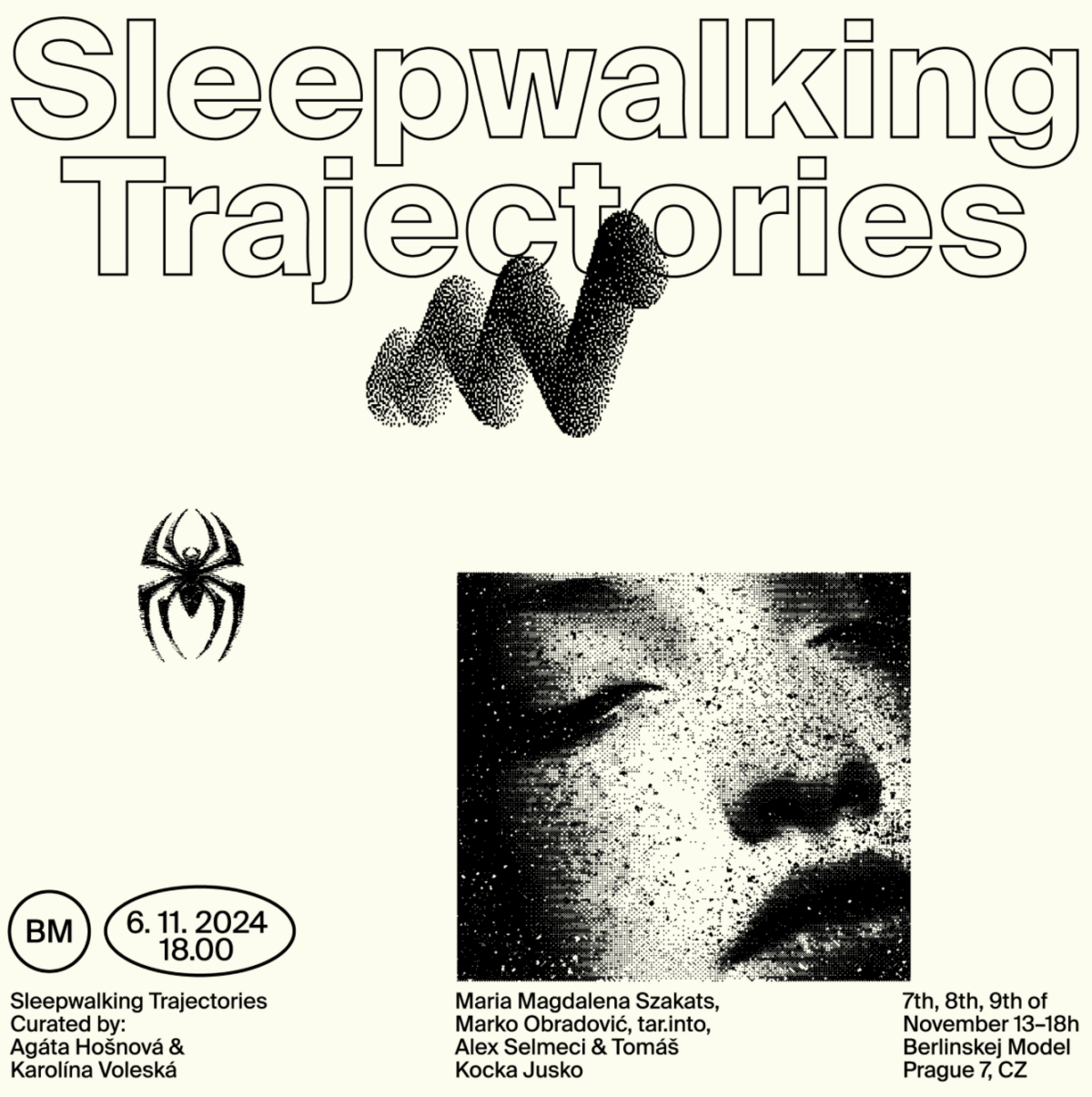News
Marko Obradović – Sleepwalking Trajectories – Group Show at Berlínskej Model
- Back to news
Marko Obradović is featured in the new group exhibition Sleepwalking Trajectories at Berlínskej Model, Prague, opening tomorrow, November 6th, at 6 p.m.
Curated by Agáta Hošnová and Karolína Voleská, the show also includes works by Maria Magdalena Szakats, tar.into, Alex Selmeci & Tomáš Kocka Jusko.

“A desire for meaning, which, as a matter of fact, makes me ceaselessly and infinitely homologous to it, what is abject, on the contrary, the jettisoned object, is radically excluded and draws me toward the place where meaning collapses. A certain “ego” that merged with its master, a superego, has flatly driven it away. It lies outside, beyond the set, and does not seem to agree to the latter’s rules of the game. And yet, from its place of banishment, the abject does not cease challenging its master. Without a sign (for him), it beseeches a discharge, a convulsion, a crying out. To each ego its object, to each superego its abject. (…) A massive and sudden emergence of uncanniness, which, familiar as it might have been in an opaque and forgotten life, now harries me as radically separate, loathsome. Not me. Not that. But not nothing, either. A “something” that I do not recognize as a thing. A weight of meaninglessness, about which there is nothing insignificant, and which crushes me. On the edge of nonexistence and hallucination, of a reality that, if I acknowledge it, annihilates me. There, abject and abjection are my safeguards. The primers of my culture.” Julia Kristeva, Powers of Horror: An Essay on Abjection (…)
Night is the place for dreaming, which leads to cleansing the mind of unnecessary sediments. We rid ourselves of unwanted layers of stimuli, wanting to gain at least a fleeting sense of control. During the day we scrutinise our hands and their intricate grooves, as if to memorise their secret writing. We slip into a sleep in which the familiar becomes uncanny, our hands no longer our own. We long to control random stimuli. The transitional state of waking puts us in an intermediate state in which we try to recognise the familiar outlines that are still hidden from us. It is like a mispronounced spell that alters the consequences of lucid action. Following our muscle memory, we get up and our motor system leads us to the bathroom—to drink water. The weight of melancholy increases during the night, and in this state the body and mind seem to gradually lose control of their own processes, with routine movements like reaching for a glass of water feeling automatic, disembodied. This moment becomes a liminal experience in which the body moves between states of wakefulness and sleep, trying to make contact with a reality that is still partially hidden behind an opaque curtain. I take a sip from a glass of water, at the bottom of which my distorted mouth trembles.